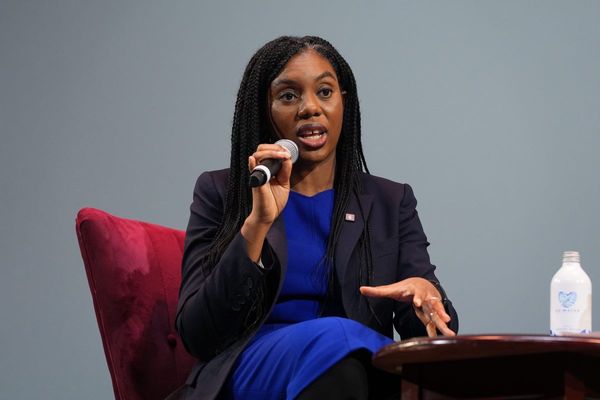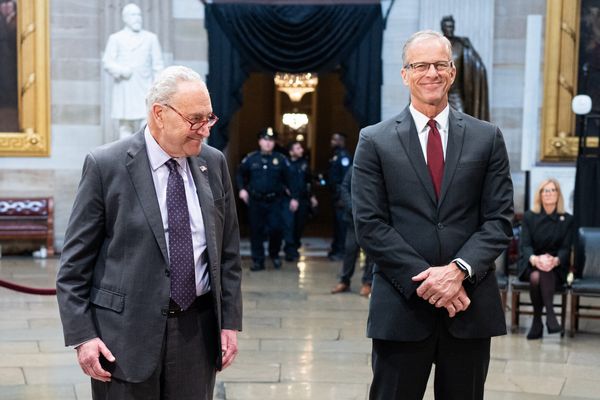In 1953, Dwight D. Eisenhower was inaugurated as the President of the United States.
The Korean War ended after three years, Sir Edmund Hillary and Tenzing Norgay made the first successful ascent to the summit of Mount Everest, and Queen Elizabeth II was crowned queen of England.
'An Iconic Brand'
And in the same year, a young man named Hugh Hefner and his associates founded Playboy magazine.
They were aided by a $1,000 loan from Hefner's mother.
The first issue--undated because Hefner wasn't sure there would be a second--featured Marilyn Monroe as the centerfold.
Playboy magazine would go on to publish the work of such writers as Saul Bellow, Irwin Shaw, Kurt Vonnegut, Joyce Carol Oates, Arthur C. Clarke, and Saul Bellow.
The publication would feature monthly interviews with luminaries like filmmaker Stanley Kubrick, jazz legend Miles Davis, Jimmy Carter and John Lennon and Yoko Ono.
In 1965, Playboy published Alex Hailey's interview with Martin Luther King shortly after King received the Nobel Peace Prize.
"It's an iconic brand and I think we've done a good job revitalizing it," Ben Kohn, CEO of PLBY (PLBY) Group, Playboy's parent company, said in an interview with TheStreet. "There are strong points in the company's history around personal freedoms and we've brought in a whole new generation."
PLBY Group was created through a reverse merger deal with Mountain Crest Acquisition Corp. a special purpose acquisition company or SPAC.
The combined company began trading on the Nasdaq in February 2021.
PLBY Group recently reported full-year revenue $247 million, up 67% year-over-year.
"I'm extremely pleased with the performance last year in what is probably the most difficult operating environment I've ever seen," Kohn said. "As much as I'm pleased I'm frustrated because I'm here to win and I want to win every day."
Kohn pointed to macro issues, such as Covid-19, supply chain troubles and labor issues, "that left a lot of money on the table and as a competitive person that's frustrating."
'Not Hugh Hefner's Playboy'
The print edition of Playboy fell victim to the pandemic, publishing its last issue in 2020.
PLBY Group is now looking at a metaverse version of the Playboy mansion and has issued Rabbitars, 11,953 NFTs that depict cartoon-like bunny characters.
"This is a brand that cannot be replicated today," Kohn said. "You would have to spend $10 billion probably on a global basis trying to replicate what we have from an awareness perspective and a business opportunity perspective."
However, there are darker parts of Playboy's history that are best left behind in the mid-20th Century.
Playboy was assailed for objectifying women and during a protest at the Miss America contest in 1969, feminists and civil rights advocates burned copies of Playboy in a "Freedom Trash Can"--along with mops, pots, pans and other items.
The A&S series "Secrets of Playboy" included serious allegations against Hefner, who died in 2017, and the company.
The charges, which the series acknowledged have not been subject to criminal investigation, included sexual assault and drug abuse.
PLBY issued a statement before the series debuted saying "the Hefner family is no longer associated with Playboy, and today’s Playboy is not Hugh Hefner’s Playboy."
"We stand by our statement," Kohn said. "We support these women coming forward and telling their story, but it's a very different company today. It's a company that has over 1,100 employees and over 80% of them are women."
In December, the company launched Centerfold, it social media-like platform with rapper Cardi B as its creative director.
"Centerfold is our version of the magazine for the next century," Kohn said. "Moving forward we have the ability to do the Playboy interview and Playboy Advisor and some of the other franchises that existed in the magazine, but do it a format that makes sense for the consumer."
'Heritage Can Be a Tough Thing'
Playboy worked with great writers he said, "but our relationship with them stopped at the print of that magazine."
"Centerfold gives us the ability to have an ongoing relationship with those creators," he said.
A recent look at Centerfold revealed plenty of images of women in various stages of undress, but Kohn said "we will continue to expand the creator demographics."
So, can Playboy accentuate the positive aspects of its history and eliminate the negative?
Jonah Berger, associate professor of marketing at Wharton School of the University of Pennsylvania, had his doubts.
"Heritage can be a tough thing," he said. "It gives people a sense of what a brand is, and what it stands for, but it can also be baggage that weighs a brand down."
In this case, Berger added "many people still have negative associations with the old Playboy brand."
"Consequently, while the company can certainly try to rebrand itself into something that's relevant for today's young people, it may be a challenge," he said, "They not only have to create new associations, but get people to let go of old ones. This is not impossible, but certainly tough to do."
Kohn maintained that Playboy is attracting a younger audience.
"Our numbers say that our audience has gone very young," he said. "We have a very young audience that is buying our clothing."
Kohn said he was feeling great about the future.
"We just have to block and tackle and execute," he said, "but the demand is there for our products and services. Now it's just a question of making sure that we have the infrastructure that can fulfill the demand."







